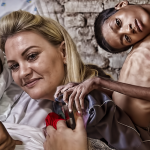The United Nation’s World Health Organization (WHO) reported that life expectancy worldwide has increased by about five years in less than two decades with Africa seeing the biggest change.
The UN health agency attributes the rise, which is the fastest seen since the 1960s, to improvements in health care for children and better availability of medicines such as those for AIDS and malaria.
The WHO revealed that life expectancy for a baby born in 2015 was 69 for men and 71 for women. Men in Switzerland and women in Japan typically live the longest, while both men and women in Sierra Leone had the lowest life expectancy at 50.
Dr. Margaret Chan, Director-General of WHO, said the figures show “great strides” in global health.
“The world has made great strides in reducing the needless suffering and premature deaths that arise from preventable and treatable diseases. But the gains have been uneven. Supporting countries to move towards universal health coverage based on strong primary care is the best thing we can do to make sure no one is left behind,” Chan said.
In addition, they also found that newborns in 29 countries, which are all high-income, have an average life expectancy of 80 years or more. Meanwhile, 22 countries in sub-Saharan Africa have newborns whose life expectancy is less than 60 years.
However, the WHO noted that there were significant data gaps in the report, which needed to be filled in order to track progress since more than half of deaths worldwide go unregistered.




